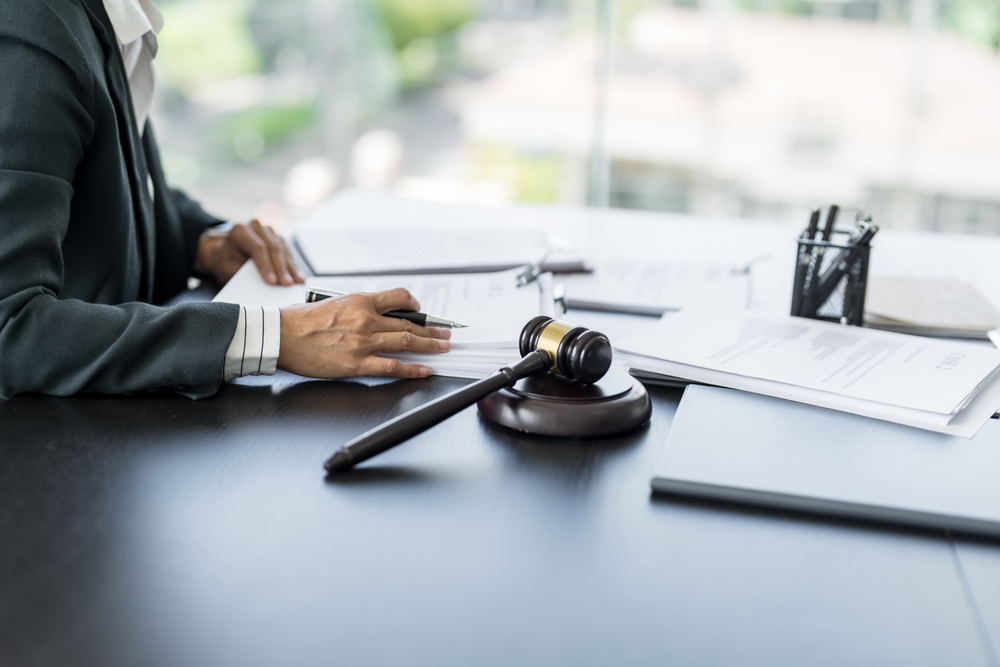Elevators are an essential part of modern life, particularly in Florida’s bustling cities like Miami, where high-rise buildings dominate the skyline. However, when these critical systems malfunction, they can lead to severe injuries or even fatalities.
If you’ve been involved in an elevator-related incident, you may wonder about your legal rights and the compensation you could pursue. Abrams Justice Trial Attorneys, a boutique law firm based in Miami, is here to guide you through the process with personalized and hands-on legal representation.
Elevator Accidents and Their Impact
Elevator accidents can happen in various ways, including abrupt stops, faulty doors, sudden drops, and electrical malfunctions. These incidents often result in physical injuries, emotional distress, and financial hardships. Common injuries associated with elevator accidents include:
- Fractures or broken bones from falls or impacts
- Head injuries, including concussions or traumatic brain injuries
- Spinal cord injuries causing temporary or permanent disabilities
- Cuts, bruises, or lacerations from sharp or moving parts
- Emotional trauma from the experience of being trapped or injured
Such injuries can drastically affect an individual’s life, making it crucial to pursue fair compensation to cover medical bills, lost wages, and other damages.
What Compensation Can You Pursue?
According to the U.S. Consumer Product Safety Commission (CPSC), approximately 17,000 people are injured annually in elevator and escalator accidents across the United States. In Florida, where high-rise buildings are abundant, these incidents occur more frequently than in other regions.
Ensuring victims receive adequate compensation is essential to mitigate the long-term financial and emotional toll of such accidents. Victims of elevator accidents in Florida may be eligible to seek compensation for various damages. These include:
Medical Expenses
Compensation for medical costs is one of the most critical aspects of a personal injury claim. Victims can recover expenses for emergency room visits, ambulance services, hospital stays, surgeries, diagnostic imaging (such as X-rays or MRIs), prescription medications, and ongoing physical therapy.
For example, under Florida Statutes Section 627.736, medical expenses incurred after an accident can be recovered through personal injury protection (PIP) insurance up to $10,000. However, in severe cases where injuries exceed PIP coverage, victims can file claims against the responsible parties for the remaining costs.
Lost Wages
An elevator accident may force victims to miss work, resulting in lost income. Compensation includes not only regular wages but also missed bonuses, commissions, and promotional opportunities. If the injuries are severe enough to prevent future employment, victims may pursue damages for long-term loss of income. According to Florida Statutes Section 440.15, lost wages and benefits can be calculated based on the worker’s average weekly wage at the time of the accident.
Pain and Suffering
Beyond financial losses, pain and suffering compensation acknowledges the emotional and physical toll of an accident. Florida courts consider the severity of the injury, the length of recovery, and the impact on the victim’s quality of life. Emotional distress, anxiety, depression, and PTSD are factors in calculating this type of non-economic damage.
Future Medical Costs
Severe injuries often require ongoing medical care. Compensation may include the costs of future surgeries, therapy, or specialized treatments. For instance, if a spinal injury results from an elevator accident, future costs might include mobility aids, in-home care, or rehabilitation services. Courts will consider expert testimony and life care plans when calculating future medical expenses.
Loss of Earning Capacity
If a victim’s injuries permanently affect their ability to work, compensation for loss of earning capacity may be sought. This involves calculating the difference between the victim’s potential future earnings before and after the accident. Florida law allows expert witnesses, such as vocational experts, to assess this loss in detail.
Wrongful Death Claims
In tragic cases where an elevator accident leads to death, surviving family members can file a wrongful death claim under Florida Statutes Section 768.21. This allows families to seek compensation for funeral expenses, loss of financial support, and emotional suffering. For example, the loss of a primary earner in a family can have devastating financial consequences, which the law seeks to address through compensation.
Property Damage
Personal items damaged during an elevator accident, such as electronics, jewelry, or clothing, can also be claimed. While not always substantial compared to medical bills or lost wages, these costs still represent a financial burden that victims shouldn’t bear alone.
Rehabilitation and Adaptive Equipment
Injuries leading to long-term disabilities may require adaptive technologies like wheelchairs, prosthetics, or home modifications. Florida law recognizes these costs as recoverable damages to help victims maintain independence and quality of life.
Loss of Consortium
Spouses of injured victims may seek compensation for loss of consortium, which addresses the deprivation of companionship, affection, and emotional support. Courts in Florida often include this type of claim in severe injury or wrongful death cases to acknowledge the impact on the family.
Punitive Damages
In rare cases where gross negligence or intentional misconduct is involved, victims may seek punitive damages. These are meant to punish the at-fault party and deter similar actions in the future. Under Florida Statutes Section 768.72, punitive damages are capped at three times the amount of compensatory damages or $500,000, whichever is greater.
How Abrams Justice Trial Attorneys Can Help
Abrams Justice Trial Attorneys offer comprehensive legal services for victims of elevator accidents. Here’s how we can assist you:
Thorough Investigation of Your Case
The firm’s skilled elevator malfunction attorneys in Miami work diligently to identify the root cause of the accident, whether it’s due to negligence by the property owner, maintenance company, or elevator manufacturer. Gathering evidence such as maintenance records, surveillance footage, and witness testimonies is critical to building a strong case.
Determining Liability
Elevator accidents often involve multiple parties. Our elevator injury lawyer carefully evaluate the circumstances to determine who is legally responsible, whether it’s:
- Building owners for failing to maintain safe premises
- Maintenance companies for negligent repairs or inspections
- Elevator manufacturers for producing defective equipment
Negotiating Fair Settlements
Insurance companies often aim to minimize payouts. Our elevator accident lawyers use extensive experience to negotiate aggressively for fair compensation that reflects the full extent of your damages.
Litigation When Necessary
If a fair settlement cannot be reached, the firm is prepared to represent you in court. Their dedication ensures your rights are protected every step of the way.
Eligibility for Elevator Accident Claims
To pursue a claim for an elevator accident in Florida, you must demonstrate that your injuries were caused by negligence or misconduct. This requires establishing four key elements:
Duty of Care
The first step is to prove that the responsible party owed you a duty of care. This means they had a legal obligation to ensure your safety. For instance:
- Property Owners: Under Florida Statutes Section 768.0755, property owners have a duty to maintain safe premises for lawful visitors. This includes ensuring that elevators are regularly inspected and properly maintained.
- Maintenance Companies: Companies hired to service elevators must adhere to industry safety standards and perform routine checks to prevent malfunctions. Neglecting these duties can establish liability.
- Manufacturers: Elevator manufacturers are responsible for ensuring their products are free of defects. The Florida Products Liability Statute (Section 768.81) outlines that manufacturers must deliver safe products to consumers.
Breach of Duty
After establishing a duty of care, you must show that this duty was breached. Breaches may include:
- Failing to conduct regular maintenance or inspections
- Ignoring safety warnings or mechanical issues
- Installing defective or outdated elevator components
- Failing to address known hazards promptly
Evidence such as maintenance logs, service records, or reports from state inspections can support your claim. In Florida, elevator inspections are required annually under the Florida Building Code, and failure to meet this standard can constitute a breach of duty.
Causation
You must prove that the breach of duty directly caused your injuries. This involves showing that the unsafe condition, such as a malfunctioning elevator or lack of proper warning signs, was the primary reason for your accident. For example:
- If an elevator suddenly drops due to faulty cables, the maintenance company’s negligence in not replacing worn cables would be a direct cause of the injuries sustained.
- If improper installation by the manufacturer leads to a malfunction, their negligence would be the cause. Florida courts often require expert testimony to establish causation, especially in technical cases involving mechanical failures.
Damages
Finally, you must demonstrate that you suffered quantifiable harm as a result of the incident. These damages may include:
- Medical expenses (both current and future)
- Lost wages and reduced earning capacity
- Pain and suffering or emotional distress
- Property damage
Florida Statutes Section 768.21 addresses recoverable damages in personal injury and wrongful death cases, ensuring victims can seek compensation for their financial and emotional losses.
Don’t Wait to Get Help
If you or a loved one has been injured in an elevator accident, don’t face the aftermath alone. Abrams Justice Trial Attorneys in Miami are here to help you pursue the justice and compensation you deserve. With our personalized approach and dedication, our Miami elevator accident lawyers can handle the legal complexities while you focus on recovery. Contact us today to schedule a consultation.


